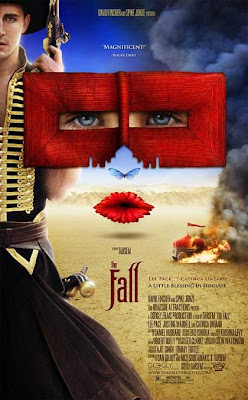
(1967, UK)
This was the third Harry Palmer film, based on the books of Len Deighton, following the adaptions of The Ipcress File and Funeral in Berlin, and helped to confirm Michael Caine as an international star.
This was also Ken Russell's first feature, and seems restrained compared to his later outrageousness in The Devils, Mahler, Women In Love, Lizstomania... But the director's love of classical music and silent cinema is evident here, with several key sequences playing over orchestral music with minimal sound effects. I noticed an advanced echo of the visuals of Tommy, when a hundred soldiers in shiny silver helmets funnel through a narrow archway. It looked very much like pinball imagery to me.
While much of the film is a cold war spy thriller, Russell's style is in evidence whenever characters get tight close-ups and look straight at the camera, or when action is shot with wild hand-held camerawork.

This is in line with the surreal cinematography of The Ipcress File, where Sidney Furie used deep focus and wide-angles to make London look more sinister. Although the Harry Palmer films were made by many of the same production crew as the 1960s James Bond films, they took pains to distance the two series. This is initially an unglamorous depiction of spying - Palmer has to cook for himself, argue about pay with his boss (Guy Doleman, also a star of Thunderball), he doesn't have any gadgets, and he wears glasses... Bloody hell!
But the last of the trilogy is veering nearer to Bond territory, with its tale of world domination, silvery sci-fi settings and larger-than-life baddie (Ed Begley Sr at his most grotesquely frightening). The title sequence is also designed by Maurice Binder, verging on Matt Helm goofiness, with its repetitive, looped animation.
Harry gets a weird phone call from a faltering, monotone voice telling him to deliver a package... to Finland. There he meets Leo, an old friend who offers him work in a secret organisation supporting a revolution in Latvia that will threaten the stability of the USSR. Leo is also getting his orders from the same computerised voice and recruits Harry for assassinations and other dirty work. The trail, or in this case wiring, leads all the way to Texas, where a communist-hating oil-billionaire has designs on the fall of Russia...

The super-computer central to the plot also reminds us how hacking used to be done in the 1960s, by changing reel-to-reel tapes and shuffling punch cards. Computing is presented as a new threat to the world, just before Hal 9000 threatened 2001: A Space Odyssey. The science-fictional technology predicts retinal scans, voice-activated computers and bio-weapons, which still looks a little futuristic, if it wasn't for the punch cards...
The extensive location photography makes the most of the unusual frozen lakes, churches and castles of Finland, contrasted by the shiny petrol tankers and cutting-edge skidoos.
The soundtrack music is another reason I keep revisiting Billion Dollar Brain. Richard Rodney Bennett's score accompanies the snowbound landscapes with the surreal ondes martenot, a keyboard adaption of the theramin (famously used in The Day The Earth Stood Still). Barry Gray was also a fan of the martenot, using it to accompany the loneliness of space travel in Journey to the Far Side of the Sun. Bennett's cascading piano theme couldn't be more dramatic, but the most serious scenes use adaptions of Russian classical symphonies, in line with the Soviet sub-plot.
Michael Caine's character prompted his appearance as Austin Powers's dad in Goldmember, as well as Myers' choice of glasses. Karl Malden plays the slippery Leo, years before he raced The Streets of San Francisco with Michael Douglas. The enchanting Francoise Dorleac (Polanski's Cul-de-sac) was en route to being as big a star as her sister, Catherine Deneuve. The jovial Oscar Homolka (Mr Sardonicus) makes a welcome return as Colonel Stok, reprising his role from Funeral in Berlin.
This was a latecomer to DVD, now available 2.35 widescreen by MGM. The delay was presumably because of the music rights to a Beatles track. Unfortunately, the solution has been to remove a short scene, but you might still catch that on TV.
The movie trailer isn't on the DVD, but is on YouTube.
The Harry Palmer Movie Site has much more on all three films, and boasts rare behind-the -scenes footage.
The soundtrack liner notes (from a huge and expensive MGM boxset) are full of insight into the production, including the sad news that Francoise Dorleac died at 25, shortly after the film's release.




































 The film is available on VideoCD, as an example of a Malaysian classic movie, and also for the lead actor
The film is available on VideoCD, as an example of a Malaysian classic movie, and also for the lead actor 


